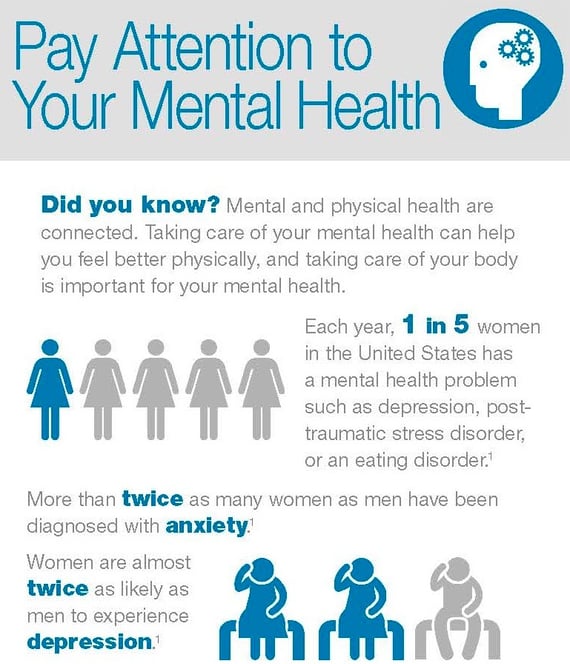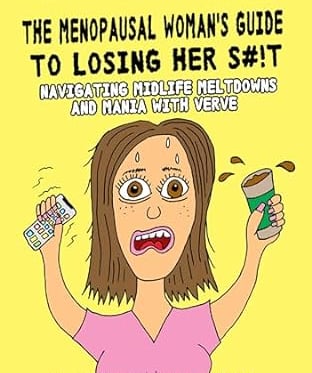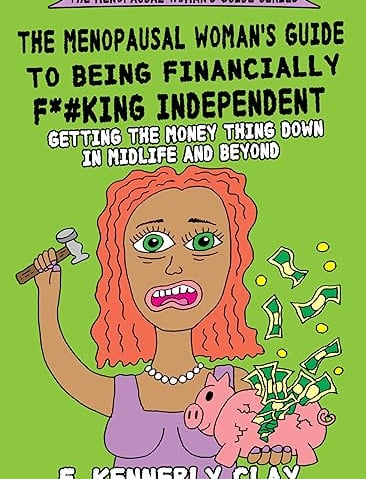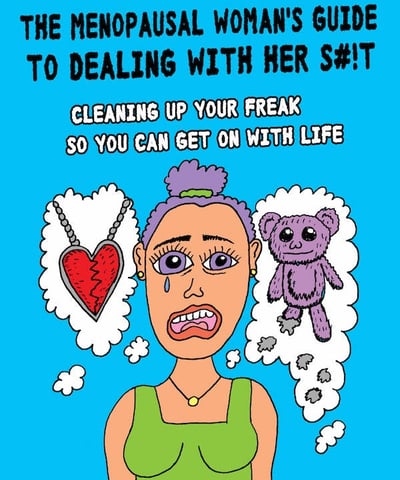Menopause and Mental Health Issues: Here's the Connection
Menopause can bring mental health challenges that make you feel like you're losing it. ✔️ Get the truth about menopause and mental health issues.
MENOPAUSAL MENTAL HEALTHMENOPAUSAL DEPRESSION
Kennerly Clay
5/27/20245 min read


Does menopause cause mental health issues?
Welcome to menopause: When it feels like your mind and body are falling apart, just like you've heard from the generations of women before you. Along with the exhausting hot flashes and night sweats, menopause can bring a slew of mental health challenges that make you feel like you're losing your everliving shit.
Many women face increased mood changes and anxiety during this transition, with Depression in Menopause being a common concern. So, let’s dive into menopause and mental health, because this is a conversation that needs to be had.
Managing mental health in menopause
For the uninitiated, menopause marks the end of a woman’s menstrual cycles, typically occurring between ages 45 and 55. This grand finale is confirmed after 12 consecutive months without a period. However, the lead-up to menopause, known as perimenopause, can start years earlier and is marked by wild hormonal fluctuations.
Hellacious hormones
The primary hormonal players in menopause are estrogen and progesterone. These hormones don’t just regulate your menstrual cycle; they’re also heavily involved in your brain’s function. Estrogen, in particular, has a significant impact on serotonin and dopamine—those lovely chemicals that keep you feeling happy and stable. As estrogen levels drop, so do these neurotransmitters, often leading to mood swings, anxiety, and depression. Progesterone, while typically quieter in the mental health conversation, also contributes by its sudden decrease, leaving your brain to scramble and adapt.
What science says (and I don't believe)
A recent study in The Lancet "found no compelling evidence for a universal increased risk" of depressive symptoms or major depressive disorder in menopause, yet found that women who experienced certain symptoms like hot flashes or sleep disturbance or those that were dealing with a major life challenge in menopause, may be more at risk.
Okay listen, I'm no fucking doctor and I love evidence-based research, but I can tell you that every fucking woman I've talked to in menopause is experiencing some kind of issue, whether she's waking up four times a night or sweating and miserable on and off throughout the day or she's in the middle of a nasty divorce or one of her parents just died. Let's assume you're one of those people who's dealing with a bunch of bullshit in menopause and therefore your depressive symptoms (and potentially, major depressive disorder) have been fucking triggered!
If you or someone you know is in crisis, please call 988, the Suicide & Crisis Lifeline in the United States.
The emotional seesaw
Menopause can turn your emotions into a rollercoaster ride that you never signed up for. One minute you’re giggling, and the next, you’re sobbing uncontrollably because you just can't take it anymore. These mood swings are more than just a nuisance; they can be profoundly destabilizing and affect your day-to-day life.
Anxiety attacking
Anxiety can manifest as constant worry, irritability, or even full-blown panic attacks. Hormonal changes can trigger the fight-or-flight response, leaving you on edge for no apparent reason. This constant state of alert can contribute to heightened agitation, which doesn't go well if you have to have human interaction.
Depths of depression
Depression in menopause can sneak up on you. It’s not just about feeling sad; it’s a persistent sense of hopelessness and disinterest in activities you once enjoyed. The drop in estrogen levels can lead to decreased serotonin, making you feel like your brain’s happiness factory has shut down for good. The symptoms of menopause depression can include fatigue, sleep disturbances, changes in appetite, and a general sense of being weighed down by life.
For me, existential depression crept in. it was untouchable by cognitive behavioral therapy and regular visits with my therapist. Even a ridiculous cocktail of Prozac, Wellbutrin and Gabapentin couldn't touch my existential depression in menopause. I suffered for a long time, dealing with not just lack of interest in life, but daily questioning, along the lines of: God, when will this fucking nightmare of life itself be over? And incessant thoughts of: Who cares about living? What's the big deal?
I had purpose, I had a great life, I had a loving, supportive network of friends and family. And yet, I couldn't care less about living. That's a taste of existential depression.
The mental molasses
Ever walked into a room and forgotten why you were there? Perhaps it's even worse, like sometimes you just stare into a computer screen or stop mid-sentence, not having any idea how the fuck you got there and what you're supposed to be doing next.
Welcome to the cognitive fog of menopause. This brain fog can make it difficult to concentrate, remember things, or even carry on a coherent conversation. It’s like your brain is stuck in molasses, making every thought and action sluggish. This can be incredibly frustrating and can make you feel like you’re losing your mental sharpness. In fact, you are losing your mental sharpness. At least momentarily because of all the hormonal havoc.
Pay attention to your mental health infographic
Each year, 1 in 5 womenin the United States has a mental health problem such as depression, post- traumatic stress disorder, or an eating disorder.
Source: Office on Women's Health
Other factors at play in mental health issues in menopause
Life stress
Menopause often coincides with other significant life changes, creating a perfect storm for mental health challenges. You might be dealing with an empty nest, aging parents, career transitions, or relationship issues. These stressors can amplify the impact of hormonal changes and send you reeling into complete overwhelm that no one around you seems to understand or really give two fucks about.
Physical health issues
The physical symptoms of menopause—like hot flashes, night sweats, and insomnia—can take a toll on your mental health. Poor sleep quality can exacerbate anxiety and depression, creating a vicious cycle that’s hard to break. Additionally, physical health issues that often arise during menopause, such as osteoporosis and cardiovascular disease, can add to your stress and anxiety. Good fucking times, man. Keep an eye on the cholesterol, too, by the way. Mine skyrocketed in menopause after being ridiculously normal for years and nothing changing in my mostly vegetarian diet at all.
So, does menopause cause mental health issues?
In some cases, yes. The hormonal upheaval, combined with life stressors and physical health changes, can set you up for anxiety, depression, and cognitive challenges. But by acknowledging your feelings, seeking professional help, making lifestyle changes, and building a strong support network, you can cope with menopausal depression with resilience and grace.
Remember, you’re not alone in this journey. Many women have walked this path before you and have come out the other side stronger and wiser. Embrace (alright, give into) the transition, educate yourself, and take proactive steps to manage your mental health.
Wanna talk more about mental health issues in menopause?


Books for women who are losing it in menopause
Mental Health
Losing your mind in peri/menopause?
The menopausal woman's guide series
Financial Health
Had enough of financial insanity?
Personal Growth
Triggers? Old stuff kicking up?
Related topics
Explore helpful articles, tips, and advice for women who are losing their shit in menopause.
Community
Stay Connected
© 2024. Eclectic Content, Inc. All rights reserved.








